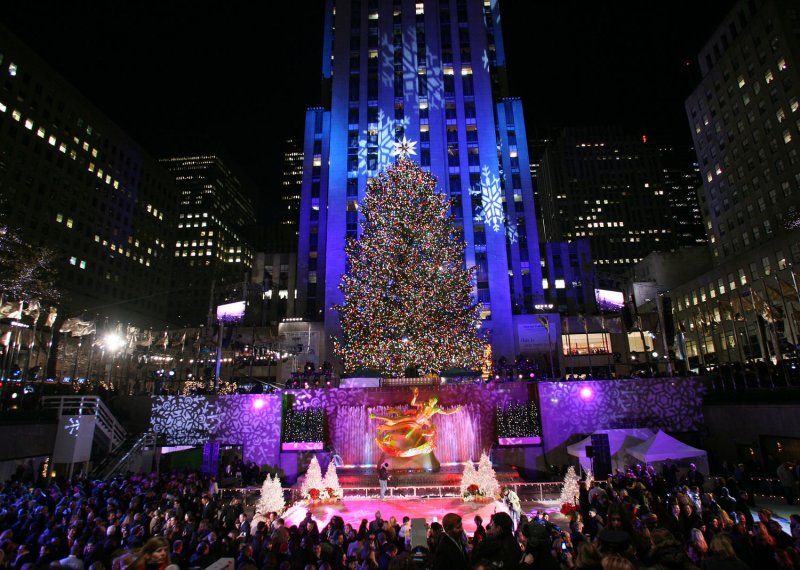The Rockefeller Center Christmas tree is lit up with over 30,000 LED lights during the tree lighting ceremony on December 3, 2008 in New York City. (UPI Photo/Monika Graff) |
License Photo
IRVINE, Calif., Feb. 10 (UPI) -- Light-emitting diodes sold as replacements for traditional light bulbs contain lead, arsenic and other hazardous substances, U.S. researchers say.
Researchers at the University of California, Irvine, say the LEDs marketed at safe, environmentally preferred alternatives to incandescent lamps and even compact fluorescent bulbs present dangers of their own, an Irvine release said Thursday.
"LEDs are touted as the next generation of lighting. But as we try to find better products that do not deplete energy resources or contribute to global warming, we have to be vigilant about the toxicity hazards of those marketed as replacements," said Oladele Ogunseitan of UCI's Department of Population Health & Disease Prevention.
He and fellow scientists at UCI and UC Davis smashed, measured and analyzed the tiny, multicolored light bulbs used in Christmas strands, traffic lights and automobile headlights and brake lights.
The lead, arsenic and many additional metals discovered in the bulbs or their related parts have been linked in hundreds of studies to different cancers, neurological damage, kidney disease, hypertension, skin rashes and other illnesses, the researchers say.
Ogunseitan cites LEDs as a perfect example of the need to mandate product replacement testing.
A long-planned state regulation originally set to take effect Jan. 1 would have required advance testing of such replacement products but was opposed by industry groups, and a less stringent version was put on hold by Gov. Arnold Schwarzenegger days before he left office.
"Every day we don't have a law that says you cannot replace an unsafe product with another unsafe product, we're putting people's lives at risk," Ogunseitan said. "And it's a preventable risk."















